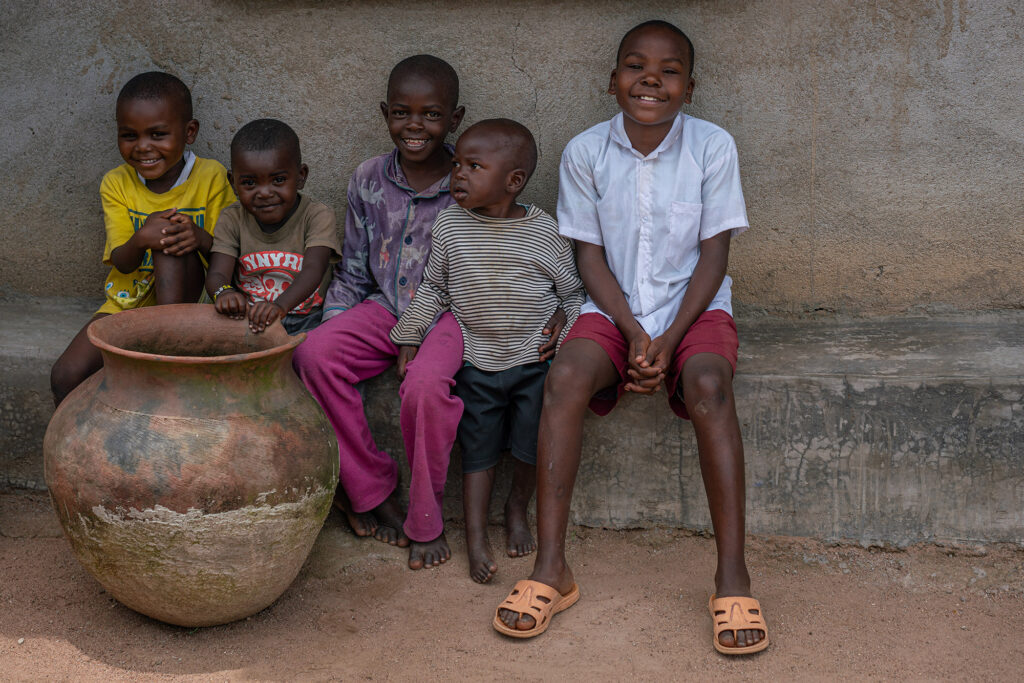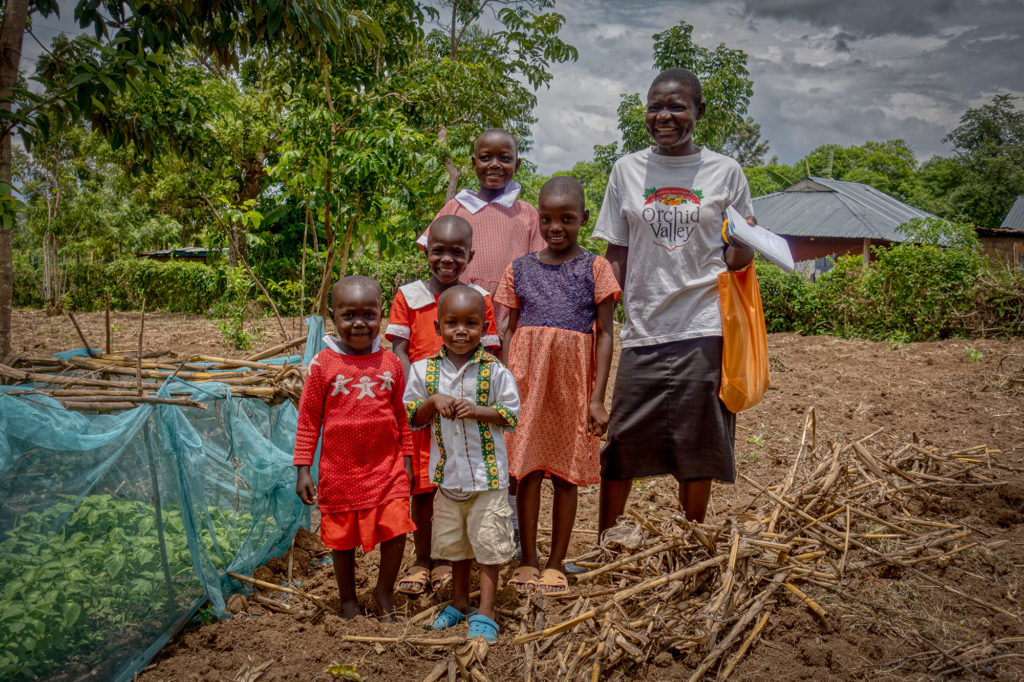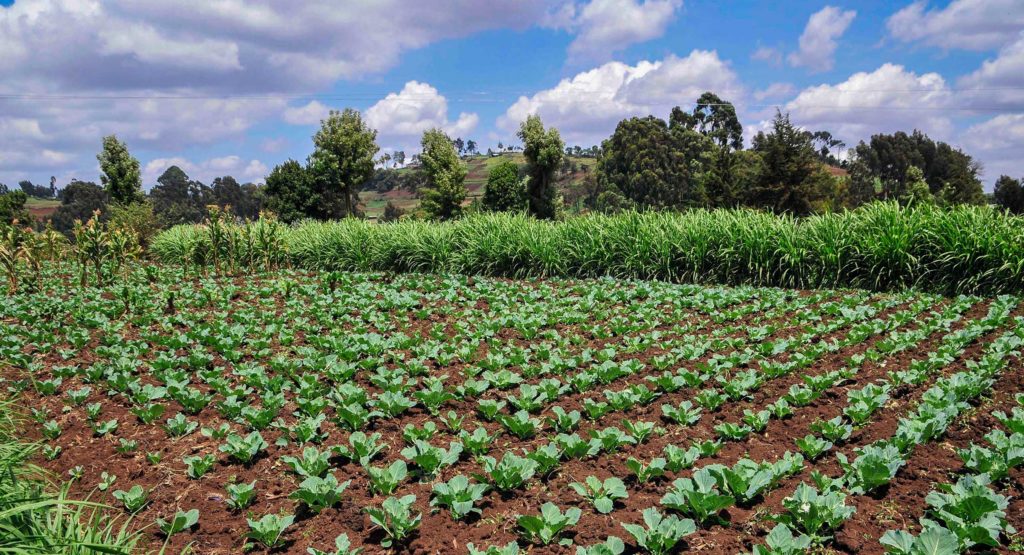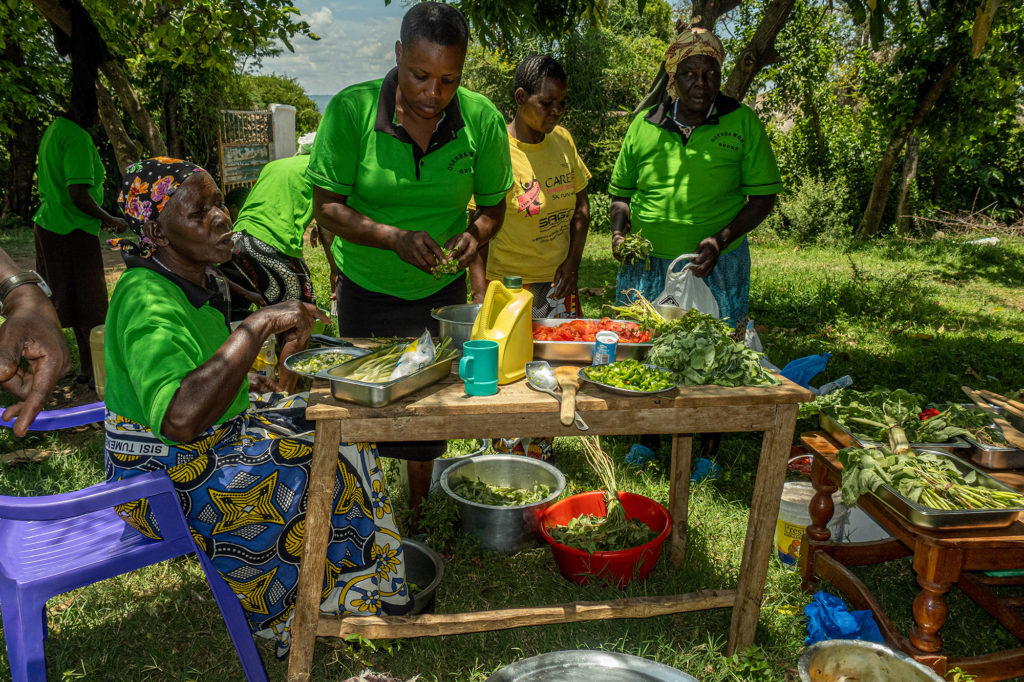SANGO-KENYA IMPROVES FOOD AND NUTRITION SECURITY FOR MOTHERS, CHILDREN, FAMILIES AND COMMUNITIES
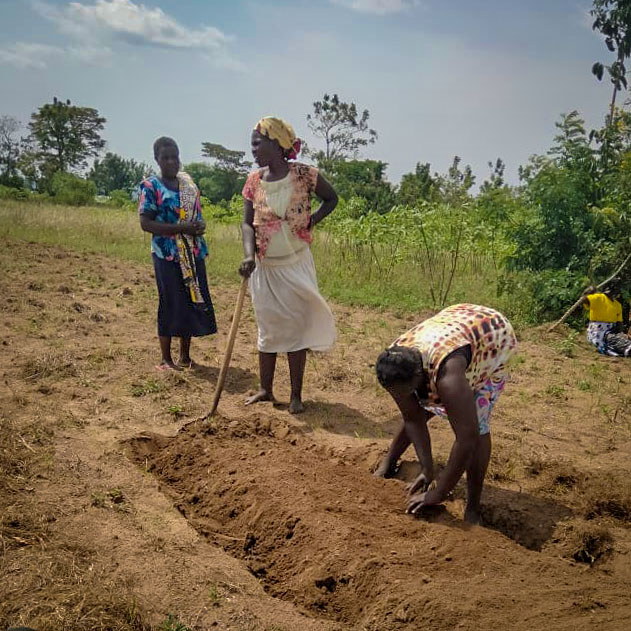
In 2019, Sango-Kenya began a pioneering collaboration with small-scale women farmers to bolster food and nutrition security during the long rainy season. We provided in-class training and field support to 19 farmers in one village, teaching them how to grow and consume traditional African green leafy vegetables, which are highly nutritious and adaptive to the region’s unpredictable climate. Our evaluation assessments demonstrate that participation in Sango-Kenya is associated with increased consumption of these green vegetables.
By 2021, we had more than tripled the size of the program, with 73 women farmers in two villages. Additionally, we extended the program to the second growing season, called the short rains, which generally last just one month. Furthermore, we added a new crop – orange-flesh sweet potatoes – to the program, which are nutritious, filling, and rarely grown in the area.
Sango-Kenya is now providing year-round support to these farmers, revolutionizing the way they access food and nutrition security!
SUSTAINABLE FARMING, INDIGENOUS AND TRADITIONAL VEGETABLES
SANGO-Kenya’s programs, developed in coordination with leaders and members of the local communities, help improve food and nutrition security among mothers, children, other household members, and the community.
Program components focus on:
Agriculture Training
- SANGO-Kenya’s agriculture experts train smallholder farmers, mostly women, to use environmentally sustainable agricultural practices that maximize crop yields, improve harvesting methods, and preserve seeds so they can be used in the next season.
- We train the farmers in the nutrition and climate-resilient benefits of growing and consuming African traditional vegetables, as well as preservation techniques so they can continue consuming them post-harvest.
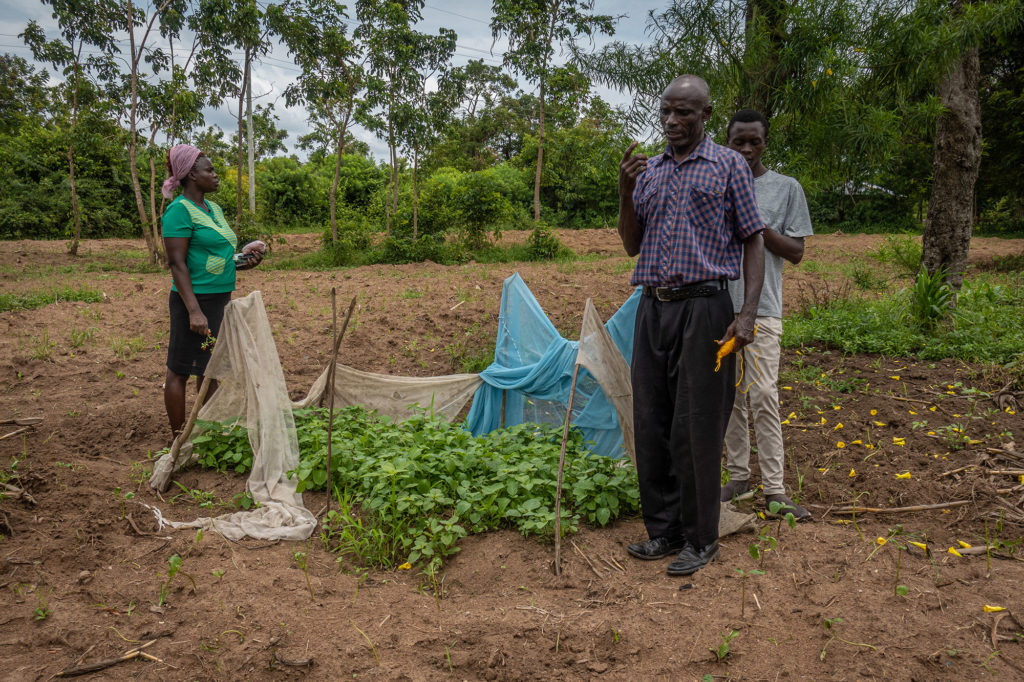
Nutrition Training
- Nutrition experts train the participants in the nutritional benefits of the vegetables the farmers grow, especially regarding pregnant mothers, infants, and young children.
- We emphasize the need to consume a variety of foods for maximum nutritional benefit.
- We train them how to prepare recipes that enhance taste and preserve nutrition.
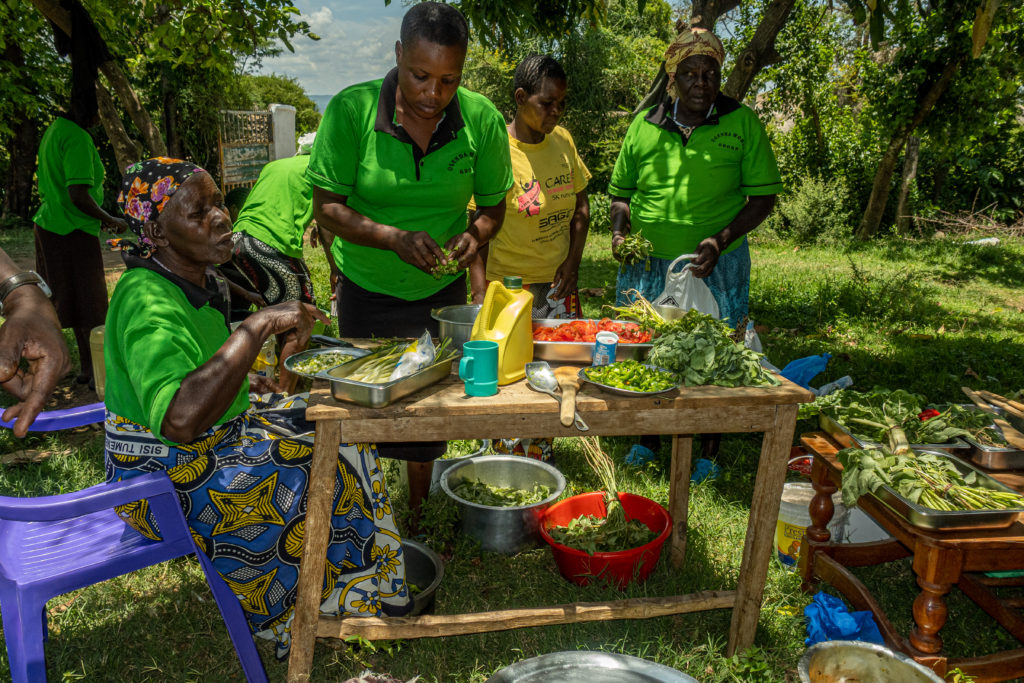
Agricultural Support
- SANGO-Kenya provides farmers inputs such as quality seeds and reusable farm materials such as netting for protecting seedlings.
- We provide on-going support from agriculture experts during land preparation, planting, growing, and harvesting to ensure maximum crop yield and maintenance of soil health.
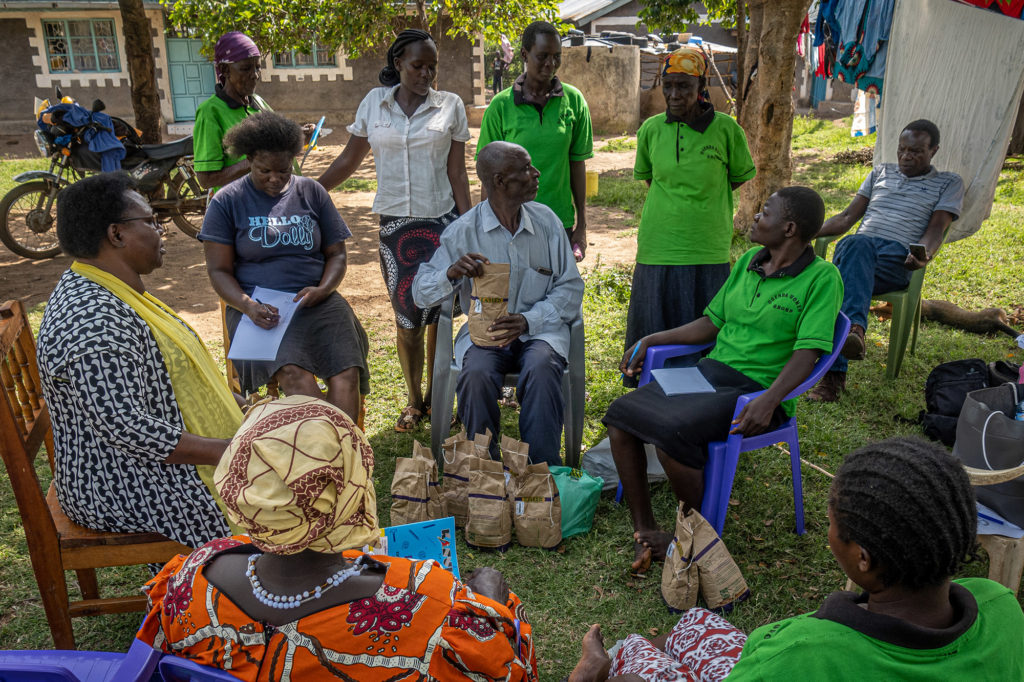
Developing Leaders for Sustainability
- Part of SANGO-Kenya’s ongoing training and support focuses on preparing the farmers to become community leaders who serve as ambassadors to the community, explaining the benefits of sustainable farming and nutrient-rich African traditional vegetables.
- SANGO-Kenya utilizes the Training of Trainers model, identifying Lead Farmers who receive additional training so they can supplement the agriculture consultants’ support to the farmers.

USING EVIDENCE-BASED ANALYSIS TO MEASURE OUTCOMES
SANGO-Kenya collects data in order to accurately measure and evaluate our programs. Data collection includes:
- Pre- and post-project questionnaires
- SANGO-Kenya conducts detailed surveys with all of the farmers prior to the beginning of the pilot and when the pilot has concluded.
- Food consumption diaries
- Farmers record their dietary intake prior to the beginning of the project, when harvest began, at the end of the harvest, and two weeks post-harvest.
- Post-training satisfaction surveys
- Farmers fill out questionnaires at the end of every training session.
SANGO-KENYA PILOT
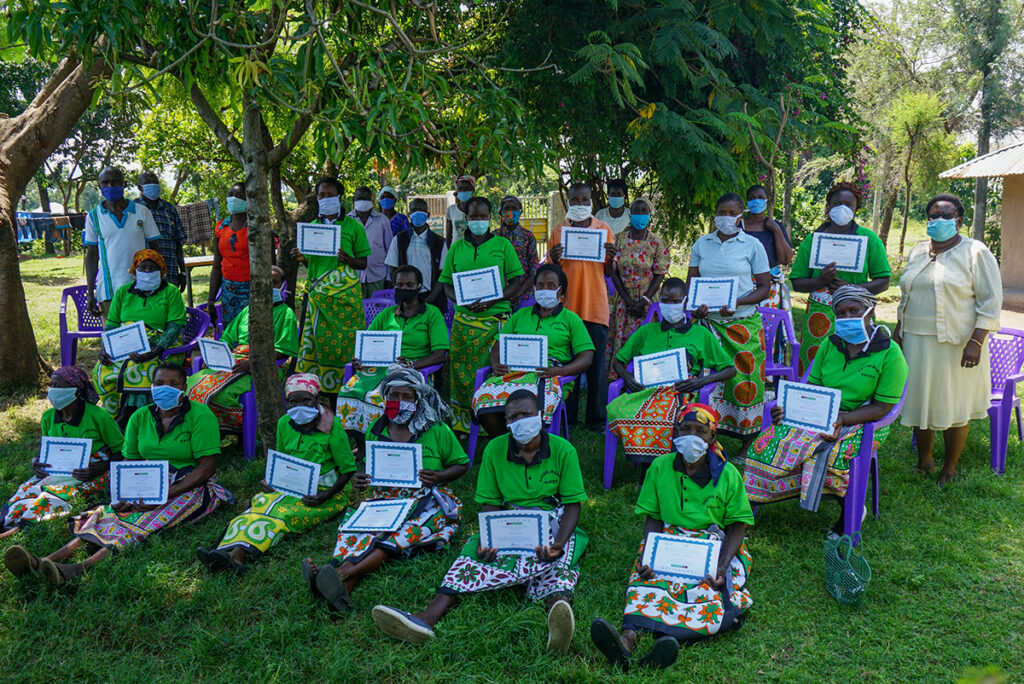
SANGO-Kenya implemented a pilot from January – August, 2020. Working with our advisors and consultants from the Ministries of Health and Agriculture, along with other community members and leaders, we identified 21 members of a women’s group (19 women and two men) to participate. Training sessions were concentrated in the first month, with some additional training during planting and harvest.
We held a graduation ceremony upon completion at which all participants received a certificate. (See the SANGO Diaries, chapter 7 for more details.)
Initial findings from data analysis include:
- SANGO-Kenya farmers felt their crop yields were greater than their neighbors’.
- They had more money from (a) spending less money on buying vegetables for home consumption and (b) selling more surplus vegetables at the market than in previous years.
- Farmers feel confident that they can help their neighbors learn the methods they used in the program.
Nutrient Rich Orange Flesh Sweet Potatoes
Introducing orange flesh sweet potatoes will help the farmers in many ways:
- Orange flesh sweet potatoes are well suited to the short rains, as they grow fast and can grow in unpredictable rainfall.
- They provide beta carotene, which is converted to vitamin A and enhances both the mother’s and infant’s immune systems as well as promoting healthy vision.
- They are filling, taste good, and provide additional calories.
- The leaves of the sweet potatoes can be eaten, providing an additional green vegetable that is rich in essential vitamins and minerals.
- The additional training will give support to farmers through December, keeping the farmers involved in SANGO-Kenya’s sustainable programs year-round.

